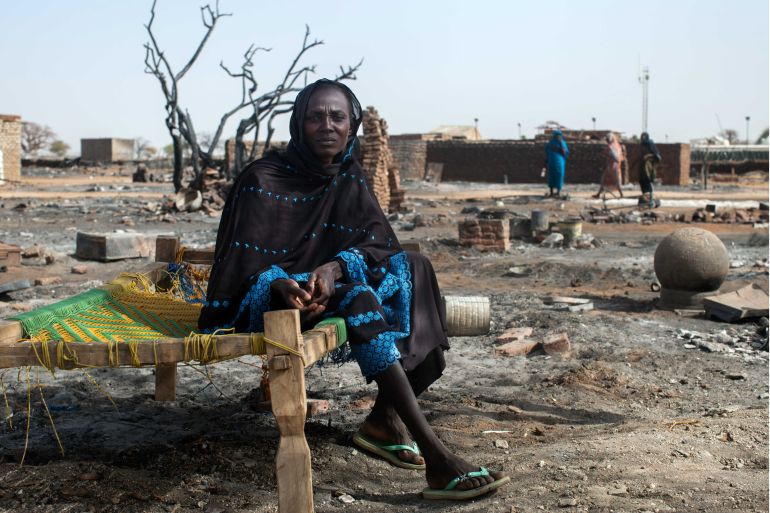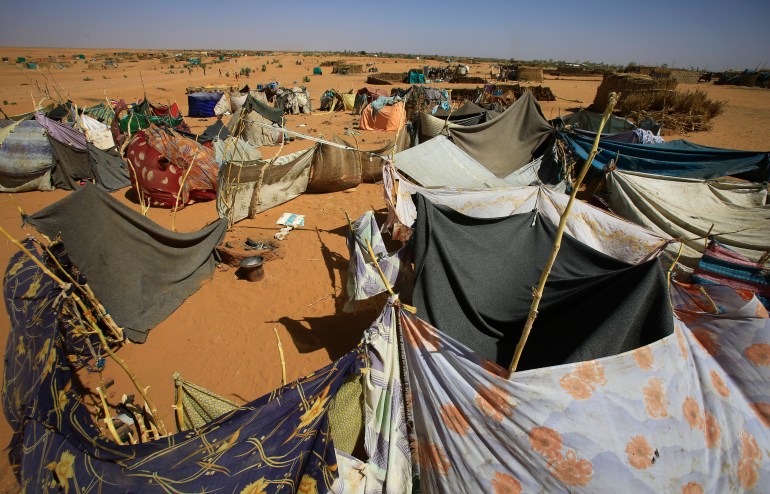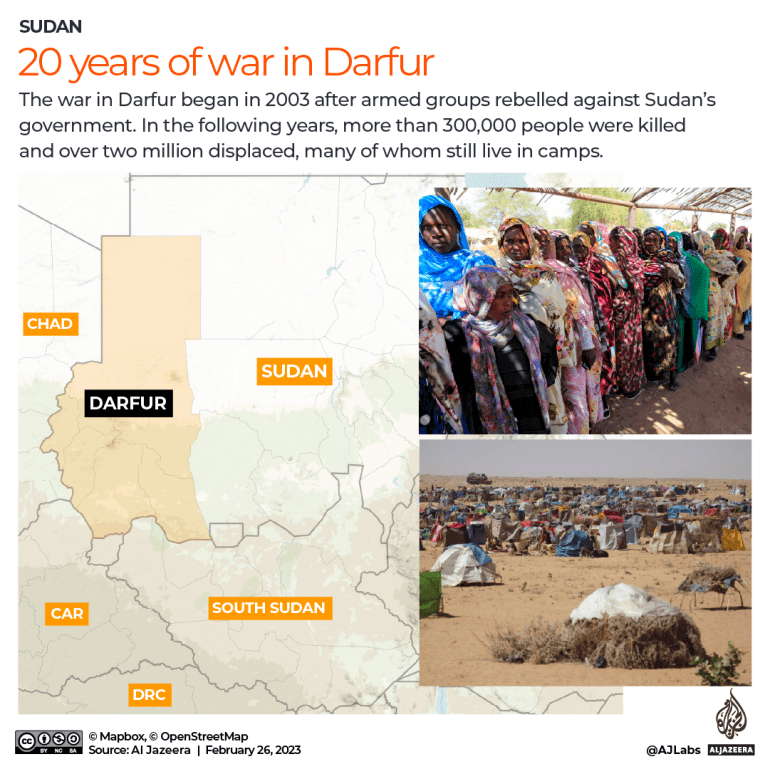20 years since war began in Sudan’s Darfur, suffering continues

At least half a million people remain in displacement camps in Darfur, two decades after a bloody conflict broke out between the Arab-dominated Sudanese government and rebel groups.
For many among the displaced, there is no home to return to. Some have had their villages burned to the ground, others say their homes are now occupied by Arab tribes. Conditions are difficult in the camps, with malnourishment rampant and international agencies forced to cut down on their aid due to funding constraints.
Keep reading
list of 3 itemsAlleged militia leader on trial at ICC’s first Darfur case
At least 168 killed in violence in Sudan’s Darfur: Aid group
Here is a look at the origins of the war in Darfur and why the conflict still matters 20 years on.
How the conflict began
The war in Darfur has historical roots in years of marginalisation of non-Arab tribes by Khartoum’s policies, leading to long discontent. Matters escalated on February 26, 2003, when a newly-formed group calling itself the Darfur Liberation Front (DLF) – later renamed the Sudan Liberation Movement/Army (SLM/A) – publicly claimed an attack on Golo, the main town in the district of Jebel Marra.
This rebel group and the Justice and Equality Movement (JEM) launched a rebellion to protest the Sudanese government’s disregard for the western region and its non-Arab population, and seek power-sharing within the Arab-ruled Sudanese state.
In response, the government of then-President Omar al-Bashir equipped and supported Arab militias known as Janjaweed to fight the rebels in Darfur. Referring to themselves as Popular Defence Forces, they worked alongside Sudanese government forces to systematically kill the African Fur, Masalit, and Zaghawa ethnic groups, from which the members of the rebel groups were drawn.

Did the conflict end?
Despite a 2004 ceasefire and the presence of African Union (AU) troops that followed, by 2007 the conflict and resulting humanitarian crisis had killed 300,000 people and displaced 2.5 million, according to UN figures.
Successive mediation efforts in Abuja (2006), Tripoli (2007) and Doha (2009) failed to bridge the gaps between Khartoum and the armed opposition groups of Darfur.
In July 2007, the United Nations Security Council authorised a joint UN-AU peacekeeping mission. After its withdrawal in 2019, abuses by local armed groups — at times implicating state security forces — again intensified.
What is the current situation?
A comprehensive peace agreement was signed in August 2020 between the Transitional Government of Sudan — formed after the overthrow of al-Bashir in 2019 — and SLM/A and JEM.
The agreement stated that the two former rebel groups would join the transition to democracy in Sudan through peaceful means.

In spite of that, Arab militias have targeted civilians with no intervention on the part of the government. West Darfur, in particular, has experienced several serious bouts of violence since the beginning of 2021. Hundreds of people have been killed, and tens of thousands displaced.
The World Food Programme last year reported that 65 percent of the population in West Darfur is food insecure — the highest level in Sudan.
According to Human Rights Watch, neither Sudan’s transitional government nor the current military rulers meaningfully addressed the underlying causes of the violence in Darfur, including marginalisation, and disputes over control of and access to land and natural resources.
“These failures have once again contributed to the escalation in violence and civilian harm,” Human Rights Watch said.